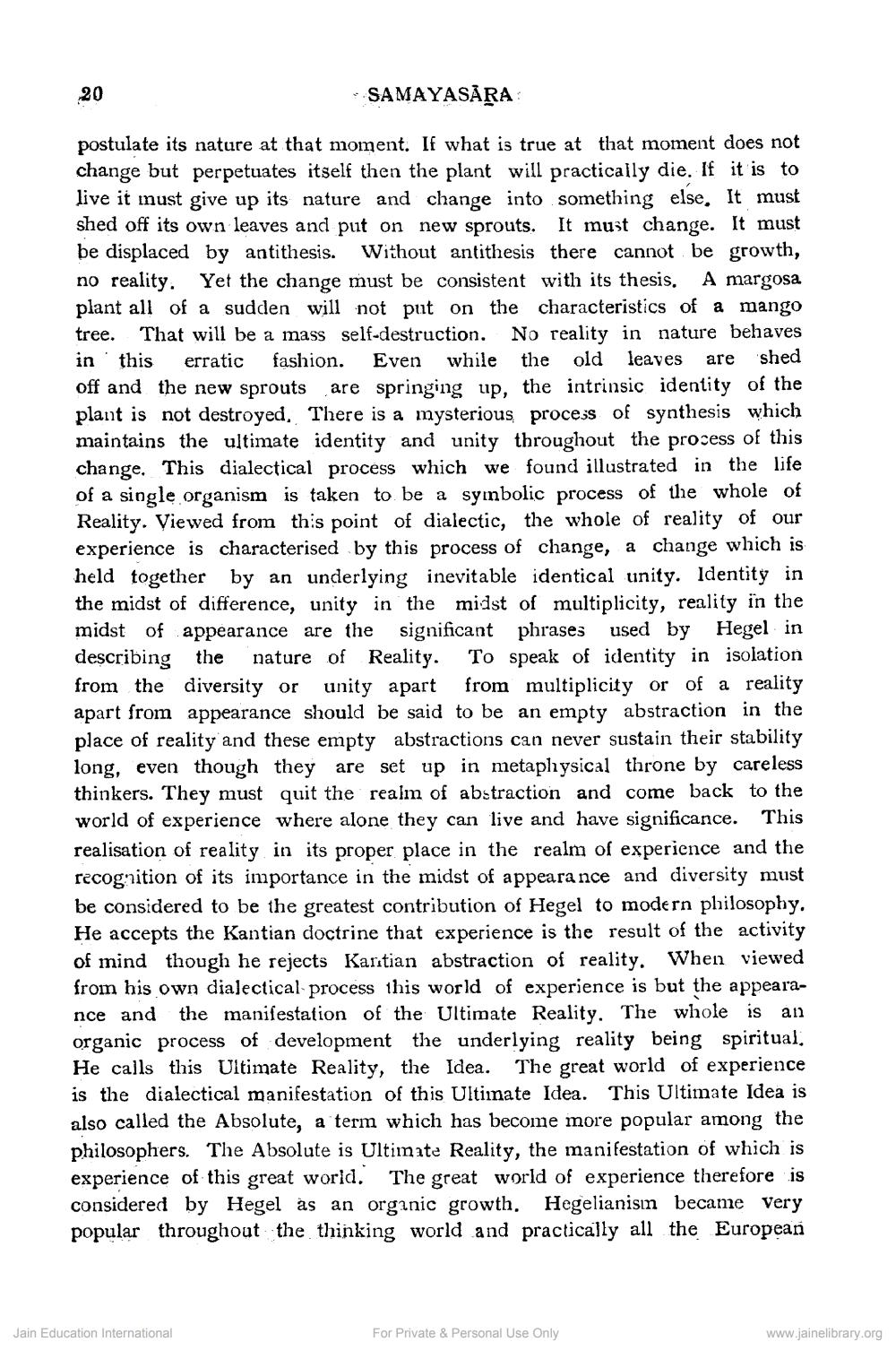________________
20
SAMAYASARA
postulate its nature at that moment. If what is true at that moment does not change but perpetuates itself then the plant will practically die. If it is to live it inust give up its nature and change into something else, It must shed off its own leaves and put on new sprouts. It must change. It must be displaced by antithesis. Without antithesis there cannot be growth, no reality. Yet the change must be consistent with its thesis. A margosa plant all of a sudden will not put on the characteristics of a mango tree. That will be a mass self-destruction. No reality in nature behaves in 'this erratic fashion. Even while the old leaves are shed off and the new sprouts are springing up, the intrinsic identity of the plant is not destroyed. There is a mysterious process of synthesis which maintains the ultimate identity and unity throughout the process of this change. This dialectical process which we found illustrated in the life of a single organism is taken to be a symbolic process of the whole of Reality. Viewed from this point of dialectic, the whole of reality of our experience is characterised by this process of change, a change which is held together by an underlying inevitable identical unity. Identity in the midst of difference, unity in the midst of multiplicity, reality in the midst of appearance are the significant phrases used by Hegel in describing the nature of Reality. To speak of identity in isolation from the diversity or unity apart from multiplicity or of a reality apart from appearance should be said to be an empty abstraction in the place of reality and these empty abstractions can never sustain their stability long, even though they are set up in metaphysical throne by careless thinkers. They must quit the realm of abstraction and come back to the world of experience where alone they can live and have significance. This realisation of reality in its proper place in the realm of experience and the recognition of its importance in the midst of appearance and diversity must be considered to be the greatest contribution of Hegel to modern philosophy. He accepts the Kantian doctrine that experience is the result of the activity of mind though he rejects Kartian abstraction of reality. When viewed from his own dialectical process this world of experience is but the appearance and the manifestation of the Ultimate Reality. The whole is an organic process of development the underlying reality being spiritual. He calls this Ultimate Reality, the idea. The great world of experience is the dialectical manifestation of this Ultiinate Idea. This Ultimate Idea is also called the Absolute, a term which has become more popular among the philosophers. The Absolute is Ultimate Reality, the manifestation of which is experience of this great world. The great world of experience therefore is considered by Hegel as an organic growth. Hegelianisin became very popular throughout the thinking world and practically all the European
Jain Education International
For Private & Personal Use Only
www.jainelibrary.org




